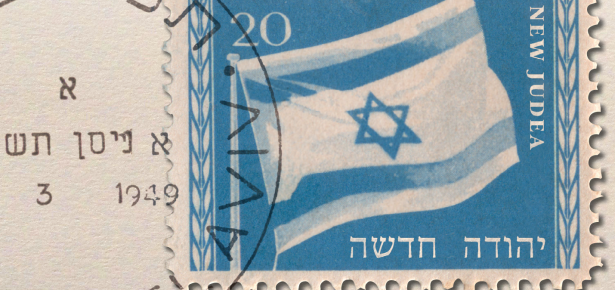
For more than three millennia, Jewish history has been marked by dramatic events. Whether ancient or medieval occurrences, such as the Exodus from Egypt and the expulsion from Spain, or modern events, such the Holocaust and the founding of the State of Israel, the Jewish experience has been defined by upheaval and transformation. Until now, however, Jewish historians have refrained from speculating about how these events might have turned out otherwise.
With the publication of What Ifs of Jewish History, scholars of the Jewish past have finally caught up to scholars in other fields and begun to explore the potential of counterfactual history. In the last generation, counterfactual history has emerged as one of the most innovative — albeit controversial — subfields within the western historical profession. Historians have traditionally viewed their task as describing, explaining, and interpreting events that happened in the past. But in recent years they have turned their attention to events that never happened at all. Whether addressing the American Civil War, the Third Reich, or the Bolshevik Revolution, they have not only examined these epochal events’ origins and consequences, but speculated about how they might have unfolded differently.
As an historian, I have long been fascinated by historical counterfactuals, both for what their newfound popularity signifies about the state of the historical profession as well as their potential to enrich historical understanding. I have explored “what ifs” related to the Nazi period in several of my books, including The World Hitler Never Made: Alternate History and the Memory of Nazism (2005) and Hi Hitler! How the Nazi Past is Being Normalized in Contemporary Culture (2015). Since 2013, I have also edited the blog, The Counterfactual History Review. In all of this work, I have tried to understand the reasons why people try and imagine the past unfolding differently.
Several years ago, I began asking colleagues of mine in the field of Jewish Studies if they might be interested in applying counterfactual reasoning to their own areas of expertise. After a long search, punctuated by a considerable amount of cajoling, I succeeded in convincing sixteen distinguished scholars to produce what is truly a pioneering set of essays on topics spanning ancient to modern Jewish history.
The essays tackle a wide range of questions: What if the Exodus had never happened? What if the Jews of Spain had not been expelled in 1492? What if Eastern European Jews had never been confined to the Russian Pale of Settlement? What if Adolf Hitler had been assassinated in 1939? What if a Jewish state had been established in East Africa instead of Palestine?
Readers will find that the answers provided in the essays are as provocative as the questions they address. To be sure, readers may question the plausibility of the essays’ conclusions; some may contend that they are needlessly pessimistic, while others may see them as naïvely optimistic. But whatever their response, they will be hard-pressed to remain indifferent.
All of this is by design. What Ifs of Jewish History seeks to provoke just as much as convince. The volume seeks to challenge conventional views about Jewish history by proposing new perspectives about it how it might have been. Readers will ultimately decide for themselves whether or not they find these perspectives to be compelling. But by prompting questions and stimulating debate, wondering “what if?” may allow new insights into the Jewish past. It may even help us understand how it might unfold in the future.
An excerpt from What Ifs of Jewish History: From Abraham to Zionism
What ifs of Jewish History: From Abraham to Zionism by Gavriel D. Rosenfeld
Latest Comments
Have your say!